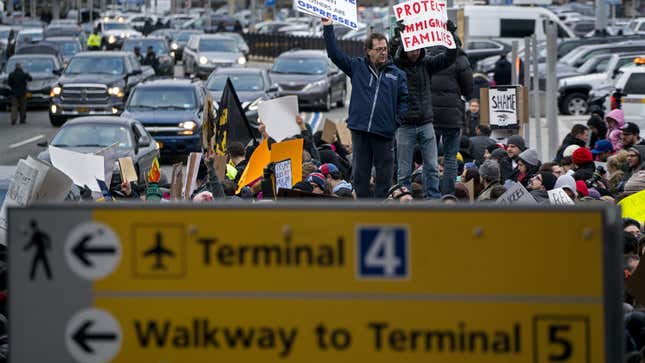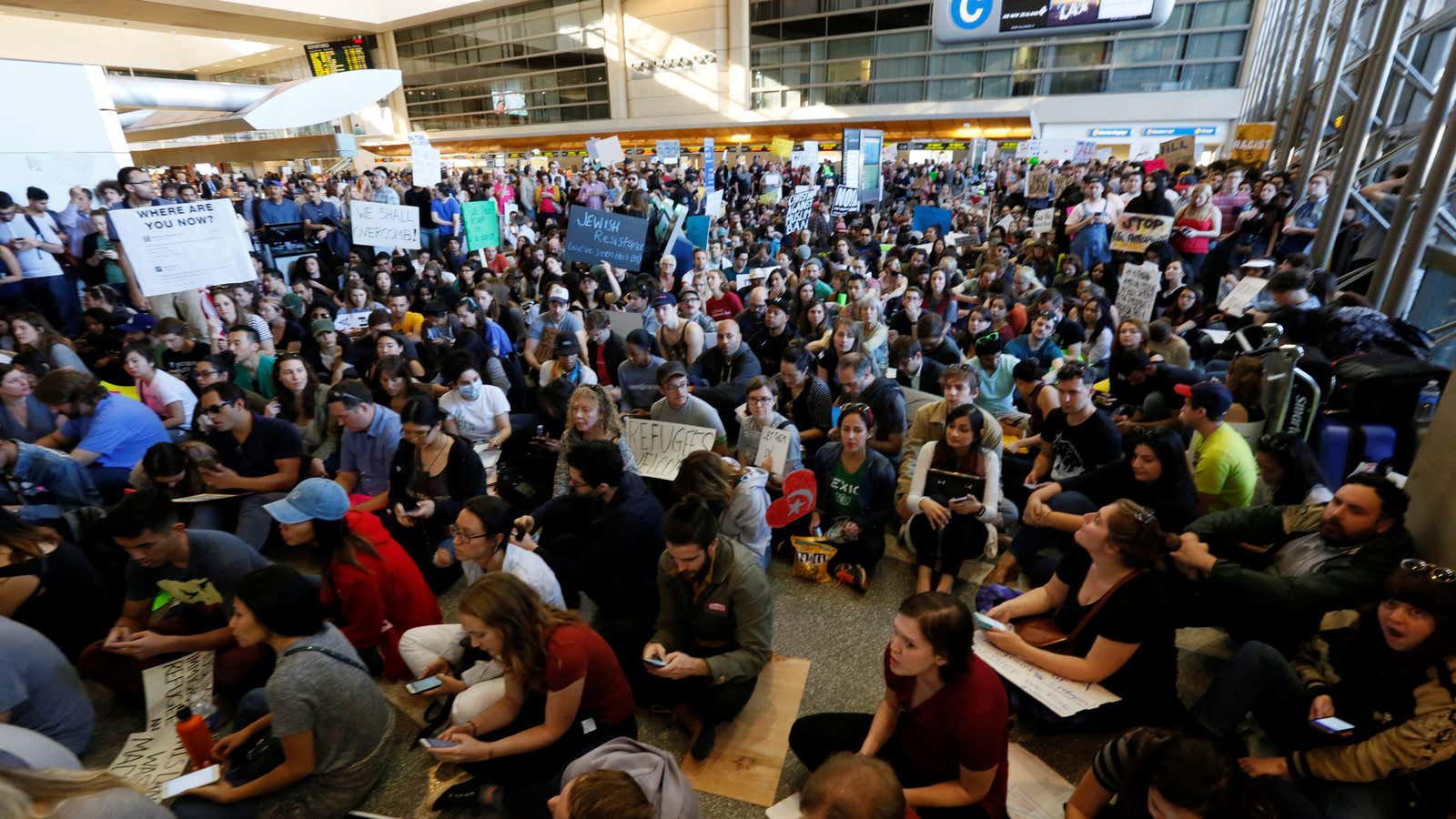For the second straight weekend of Donald Trump’s presidency, demonstrators gathered in the largest US cities to protest his policies. But the latest round of demonstrations were unlike anything seen in recent history.
Thousands of protesters, including US lawmakers, who opposed Trump’s temporary ban on refugees and on visitors from seven majority-Muslim nations, flocked to the country’s largest airports, demanding the Trump administration change its policies and release passengers that were detained upon arrival.

Massive social protest across US airports on this scale is unprecedented and has the potential to disrupt transportation to some of the largest US cities’ main arrival points for both foreign and domestic visitors.
It is too early to tell how security forces would respond to a repeat of last weekend’s protests, but one possibility is that police could set up an area for demonstrators—even for a brief period. During the “Occupy Wall Street” protests in New York in 2011, protesters took over Zuccotti Park, near the heart of the financial district, which was tolerated by police—at least for awhile.
New York state’s governor Andrew Cuomo signaled his approval for the protests when he ordered the AirTrain shuttle that connects JFK airport in New York with the subway and commuter rail systems—which was shut down after crowds began to arrive—to re-open and allow protesters to continue to flood in. Trump blamed the protesters as well as a computer problem at Delta Air Lines for the chaos at airports over the weekend.
Airport protests present yet another challenge for security forces, which have the unenviable task of balancing public safety with the fastest movement of passengers in and out of terminals as possible. This difficulty was exposed in the terror attacks in Istanbul and Brussels airports last year, and a deadly shooting at a baggage claim in Florida this month, which showed how security officials can’t be everywhere at once.
Jeffrey Price, an aviation security expert and a professor at the Metropolitan State University of Denver, said the safety of the protesters must also be taken into account. ”Large groups of people do make an attractive target,” he told Quartz.
Spare a thought, also, for the beleaguered airlines who have to enforce this very confusing order, along with the Department of Homeland Security. And then there’s the inconvenience to already-stressed passengers trying to make it through airport security on time, let alone navigate a protest. Airports, including Atlanta’s Hartsfield-Jackson and JFK, told passengers to arrive early and use alternative entry points during the demonstrations.
If the protesters stick around, they could cause passengers to miss their flights, a costly headache for both travelers and airlines. A spokesman for Southwest Airlines told Quartz suggested passengers call the airline if they missed a flight due to the protests and that they would receive a fee waiver.
British Airways and Etihad told Quartz said they were offering refunds or fee waivers if customers who booked their flights weeks and months ago now lacked the accepted documentation to enter the US.
